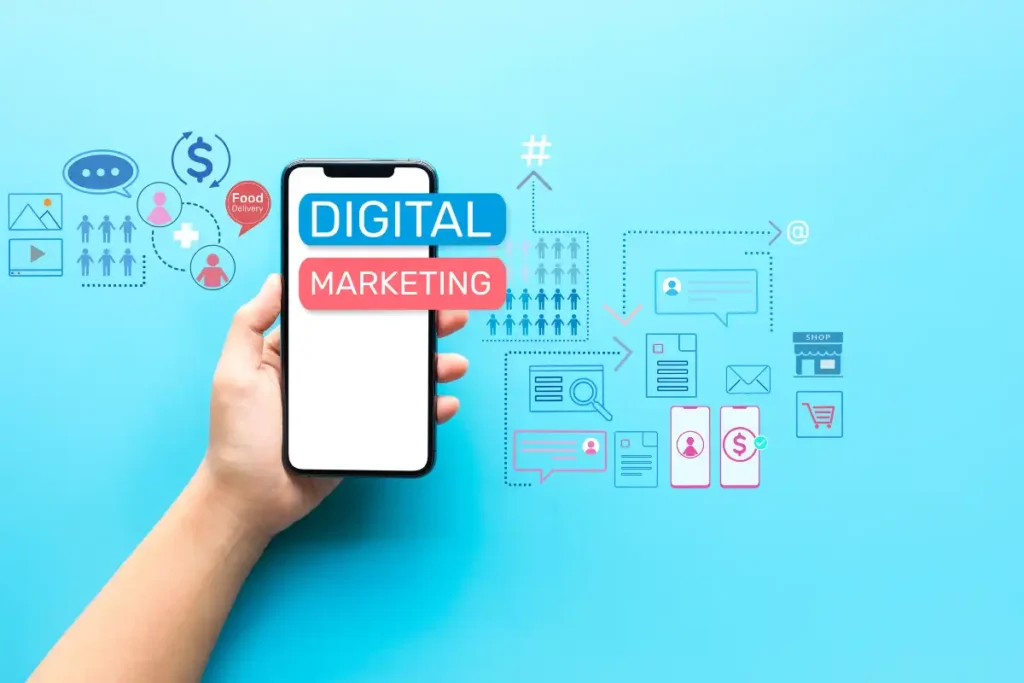Content marketing has become an essential tool for small businesses looking to grow their online presence and attract new customers. By consistently delivering valuable, relevant content, small businesses can establish themselves as authorities in their field, build trust with their audience, and drive sales. In this guide, we\\\’ll explore content marketing strategies tailored to small businesses, offering tips to help you maximize your efforts and stay competitive.
Why Content Marketing Matters for Small Businesses
Content marketing offers several key benefits for small businesses:
- Builds brand awareness: Well-written content helps your business get noticed by a broader audience.
- Generates leads: By addressing customer pain points and offering solutions, you can attract potential leads who are already searching for answers.
- Boosts SEO: Search engines prioritize high-quality content. Regularly publishing optimized content can improve your website’s ranking and increase organic traffic.
Developing a Content Marketing Plan
To succeed with content marketing, small businesses must first develop a solid plan. Here’s how to get started:
1. Define Your Audience
The first step in any content marketing strategy is knowing your target audience. By understanding who your customers are, you can create content that resonates with them. Consider the following when defining your audience:
- Demographics: Age, gender, location, and income level.
- Behavior: What are their needs and pain points? How do they search for information?
- Preferred Content: What type of content does your audience engage with the most (e.g., blog posts, videos, social media)?
2. Conduct Keyword Research
SEO plays a vital role in content marketing. To increase visibility, small businesses should focus on keyword research to find terms their audience is searching for. Free tools like Google Keyword Planner and Ubersuggest are excellent for identifying:
- High-volume keywords: Popular search terms that align with your business.
- Long-tail keywords: Specific phrases with less competition but higher intent, such as \\\”best SEO software for small businesses.\\\”
Make sure to incorporate these keywords naturally into your content, including your titles, headings, and meta descriptions, for better search engine optimization.
3. Create a Content Calendar
Consistency is key in content marketing. A content calendar ensures that you stay organized and regularly publish content. When creating a calendar, keep the following in mind:
- Post frequency: Determine how often you’ll post new content. For most small businesses, posting weekly or biweekly is manageable.
- Content types: Include a mix of blog posts, videos, infographics, and social media content to keep your audience engaged.
- Seasonal content: Plan content around holidays, sales, or industry events to keep it relevant.
4. Diversify Content Formats
While blog posts are effective, diversifying your content strategy can help you reach a wider audience. Some content formats to consider include:
- Videos: Short, engaging videos can explain complex topics and increase user engagement.
- Infographics: Visual content is shareable and can help illustrate key points or data.
- Podcasts: Podcasts allow you to discuss topics in-depth and engage with your audience in a different way.
- Webinars: Hosting a webinar on industry topics can establish your brand as an expert in your field.
By experimenting with different formats, you can find out which content type resonates most with your audience.
5. Promote Your Content
Creating great content is only part of the equation—promotion is essential for driving traffic. Small businesses can promote their content through:
- Social media platforms: Share content on platforms like Facebook, LinkedIn, and Instagram where your target audience is most active.
- Email marketing: Build an email list and send your content directly to your subscribers’ inboxes.
- Guest blogging: Writing guest posts for industry blogs or partnering with influencers can help you tap into new audiences.
6. Measure and Adjust Your Strategy
To refine your content marketing strategy, you’ll need to measure performance. Tools like Google Analytics and SEMrush can provide insights into:
- Traffic sources: Where are visitors coming from, and how are they finding your content?
- Engagement metrics: How much time are users spending on your content, and are they interacting with it (e.g., comments, shares)?
- Conversion rates: Are users taking the desired action (e.g., signing up for a newsletter or making a purchase)?
By reviewing these metrics regularly, you can adjust your strategy, focusing on the content that performs best and cutting out what doesn’t.
Content Marketing Mistakes to Avoid
While content marketing is effective, small businesses often make common mistakes that hinder success. Avoid the following pitfalls:
- Lack of consistency: Sporadic posting can harm your brand’s visibility. Stick to your content calendar and publish regularly.
- Not optimizing for SEO: If your content isn’t optimized for search engines, it may never be seen by your audience. Always incorporate keywords and metadata.
- Ignoring audience engagement: Content marketing is a two-way street. Engage with your audience by responding to comments, answering questions, and encouraging feedback.
Conclusion
Content marketing offers small businesses an affordable and effective way to increase brand awareness, attract leads, and boost SEO. By following the strategies outlined here—defining your audience, conducting keyword research, creating a content calendar, diversifying content formats, promoting your content, and measuring performance—you can build a strong foundation for long-term success.
- AI Cheat Sheet for Local Business Owners
- The Era of AI Search and Large Language Models (LLMs) in 2025
- How AI for Business is Revolutionizing Modern Enterprises (2025 Guide)
- Marketing Strategies for Small Businesses on a Budget
- 10 Must-Do Google Business Profile Optimizations for Local Businesses in Woodstock, GA (2025 Edition)



